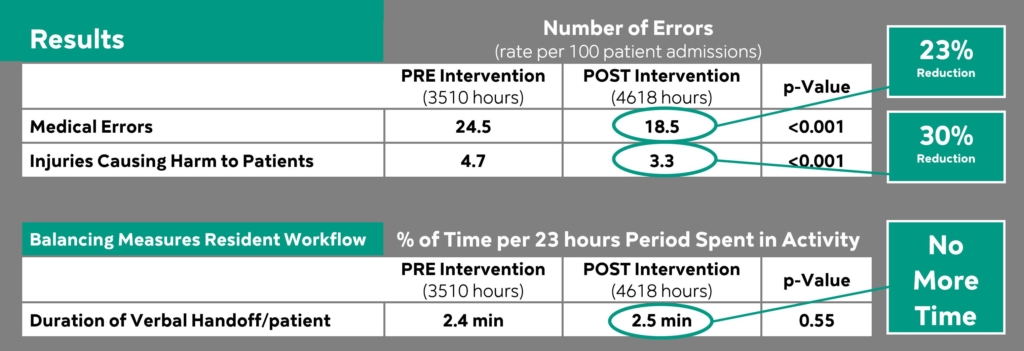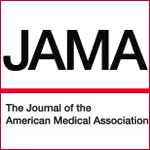The I-PASS Handoff Program
has an impressive volume of data demonstrating its ability to transform hospital communication practices and improve outcomes. The largest and most rigorous studies are highlighted to the right.
Starmer AJ, the I-Pass Study Group. New England Journal of Medicine 2014
Click here for our full bibliography


Journal of the American Medical Association
This study conducted at Boston Children’s Hospital reviewed 1255 patient admissions to deduce medical error rates before and after the implementation of the I-PASS Handoff Program. Not only did medical errors and preventable adverse events both decrease, but the quality of written and verbal communications improved as well.
Read the full article here.

Academic Medcine
This article describes the challenges in designing and implementing a handoff curriculum, and outlines the process used to develop and implement the I-PASS Handoff Program in a pediatric residency program. Within the study, 96% of residents and 97% of faculty agreed or strongly agreed that the curriculum promoted relevant skills for patient care.
Read the full article here.

New England Journal of Medicine
This multi-center, prospective intervention study analyzed over 10,000 patient admissions and demonstrated an overall decrease in medical errors of 23% and a 30% drop in the preventable adverse event rate after the implementation of the I-PASS Handoff Program – without increasing the duration of handoffs or disrupting resident workflow, including patient–family contact and computer time.
Read the full article here.
